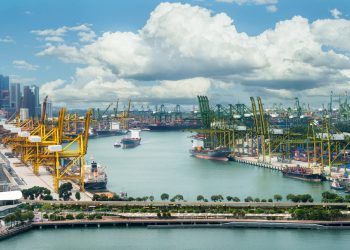Amid the COVID-19 pandemic, the International Monetary Fund (IMF) estimates that the crisis caused by the disease will be the “worst recession since the Great Depression”, as the global economy is expected to contract sharply by –3% during 2020, much worse than the 2008–09 financial crisis.
In fact, in its recent economic outlook report, IMF described the COVID-19 pandemic as a crisis “like no other” and predicted that world economic output will shrink by 3% this year, before experiencing a partial rebound next year.
It is very likely that this year the global economy will experience its worst recession since the Great Depression, surpassing that seen during the global financial crisis a decade ago. The Great Lockdown, as one might call it, is projected to shrink global growth dramatically.
…IMF noted in its report.
For the first time after the Depression, the world’s advanced economies and its developing markets are in simultaneous recession.
Specifically, in the last major downturn back in 2019, emerging markets reported full-year growth in an amount sharply equal to the the contraction seen in advanced economies.
Although, this time, the advanced economies are estimated to experience negative growth of -6.1%. As Italy and Spain are expected to fare particularly badly, with contractions of -9.1 and -8.0% respectively. At the same time, emerging/developing economies will likely see a contraction of -1.0%.
While much is uncertain about the pandemic’s course and the global response required to fight it, IMF’s current forecast calls for a rebound in 2021, with growth of 5.8 percent. The cumulative loss to global GDP over 2020 and 2021 from the pandemic crisis could be around $9 trillion, greater than the economies of Japan and Germany, combined.
….as Gita Gopinath, the IMF’s economic counsellor and the director of its research department said.
Concerning the maritime industry, as seen already, world trade market has been especially affected by the lockdown. Namely, trade volume in goods and services is considered to drop by -11%, due to the several declines in trade between and among the advanced economies.
Among others, Allianz has also issued a research considering that the disease will bring greater impacts, worst than those of the US-China trade war. In fact, the research reveals that the losses of trade in good and services may amount $320 billion per quarter following the business disruption.































































